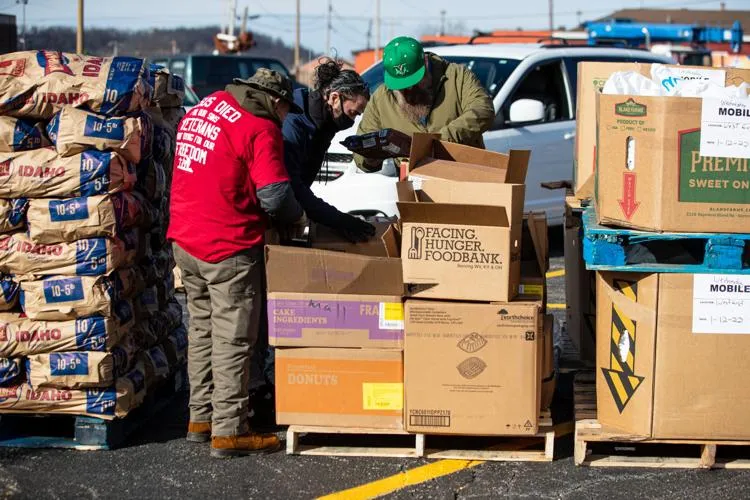The looming federal government shutdown will have a major effect on some of West Virginia’s most vulnerable, the very young and the elderly, when it comes to putting healthy food on the table.
The state’s two major food banks, Facing Hunger in Huntington and the Mountaineer Food Bank in Gassaway, help more than a quarter million people in need.
Facing Hunger Food Bank CEO Cyndi Kirkhart said a shutdown would immediately stop checks and meals going to tens of thousands in the WIC, or Women Infants and Children and Meals on Wheels for seniors programs.
“There’s about 37,300 individuals in our region’s WIC program,” Kirkhart said. “Out of that number, 7,592 are women. There are 21,313 children. And then the infant’s number is 8,387. With a shutdown, the benefits will stop with immediacy.”
She said WIC families losing about $200 a month will not have the specific purchasing ability for earmarked nutritional food resources.
“All those important foods, like milk, juice, cereal, those things that families rely on to have healthy children, suddenly become out of reach,” Kirkhart said.
Kirkhart said most of the seniors getting Meals on Wheels lack mobility.
We have about 57,000 seniors that qualify for federally-funded programs,” Kirkhart said. “Many rely on Meals on Wheels to bring meals into their homes. What meals they don’t get from the Meals on Wheels program, they’re going to turn to the food banks, and other charitable food programs to supplant those missing meals.”
Kirkhart said depleted West Virginia Food Bank inventories still have not recovered from the pandemic, from inflation, from cutbacks and other societal variables.
“Everyone is feeling the pain of high inflation and high fuel prices so charitable giving starts to drop,” she said. “We pay more for the food that we purchase. We can’t buy as much as we have historically. And we’re trying to expand programming to do home deliveries to the seniors at a very critical time. So, it’s quite a perfect storm.”
Kirkhart said the Facing Hunger Food Bank has strategically planned for purchases to help those who may be in immediate need.
“We have things lined up to make additional purchases of those very food products that focus on WIC and our seniors enjoy,” she said.
Kirkhart said people with questions on food availability can contact the Facing Hunger Food Bank at 304-523-6029. Or contact the Mountaineer Food Bank at 304-364-5518.
